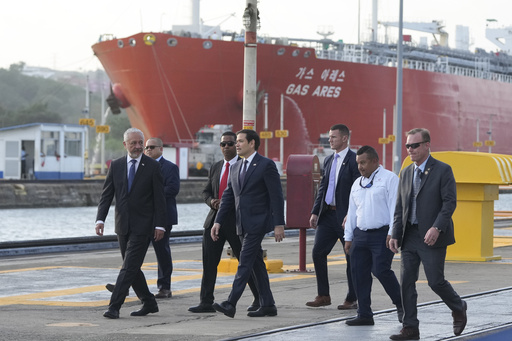
PANAMA CITY — In a statement made on Thursday, Panamanian President José Raúl Mulino refuted claims made by the U.S. State Department regarding a supposed agreement permitting U.S. warships to navigate the Panama Canal without incurring transit fees.
Mulino expressed his surprise at the U.S. assertion, which was released late Wednesday, emphasizing during a weekly press conference that he had informed U.S. Secretary of Defense Pete Hegseth that he lacked the authority to alter or exempt fees associated with canal transit.
The controversy arose when the U.S. State Department announced through social media that American government vessels would now be able to use the Panama Canal free of charge, a policy reportedly expected to save the U.S. millions annually. In response to this declaration, the Panama Canal Authority quickly issued a statement clarifying that there had been no modifications to the fee structure.
Mulino firmly rejected the U.S. claim, labeling it as based on falsehoods. He indicated that he would instruct Panama’s ambassador to Washington to formally challenge the U.S. statement. Furthermore, he was slated for a conversation with U.S. President Donald Trump on Friday to address the issue.
U.S. Secretary of State Marco Rubio commented on the situation from the Dominican Republic, stating he had no confusion over the discussions he had with the Panamanian officials. He reiterated the importance of adhering to Panama’s legal processes, alongside stressing the U.S. treaty obligation to protect the Panama Canal in the event of an attack. Rubio noted the absurdity of potentially paying transit fees for a zone that the U.S. is obligated to defend during conflict.
During his visit to Panama, Rubio conveyed a message from Trump regarding discontent over China’s influence in the canal region. He warned that China’s presence could possibly contravene a 1999 treaty that guaranteed the canal’s neutrality upon its transfer to Panama.
While canal officials indicated their readiness to prioritize U.S. warships for passage, they did not discuss the possibility of eliminating fees altogether. Mulino reiterated that both the Constitution of Panama and the laws governing the Canal Authority stipulate that fee waivers are not permissible, referring to this restriction as a “constitutional limitation.”
Since the year 1998, U.S. war vessels—including submarines—have crossed the Panama Canal almost 1,000 times, representing a mere 0.3% of total canal traffic. Over this period, the canal has collected approximately $25.4 million in fees from these passages, as per the canal authority’s data. The fee structure applied to U.S. warships is determined based on the vessel’s displacement tonnage, which differs from the metrics used for commercial shipping.
In conclusion, the tense exchange between the U.S. and Panama regarding the canal’s transit fees highlights the complexities of international agreements and the ongoing scrutiny of foreign influence within strategically significant regions.

